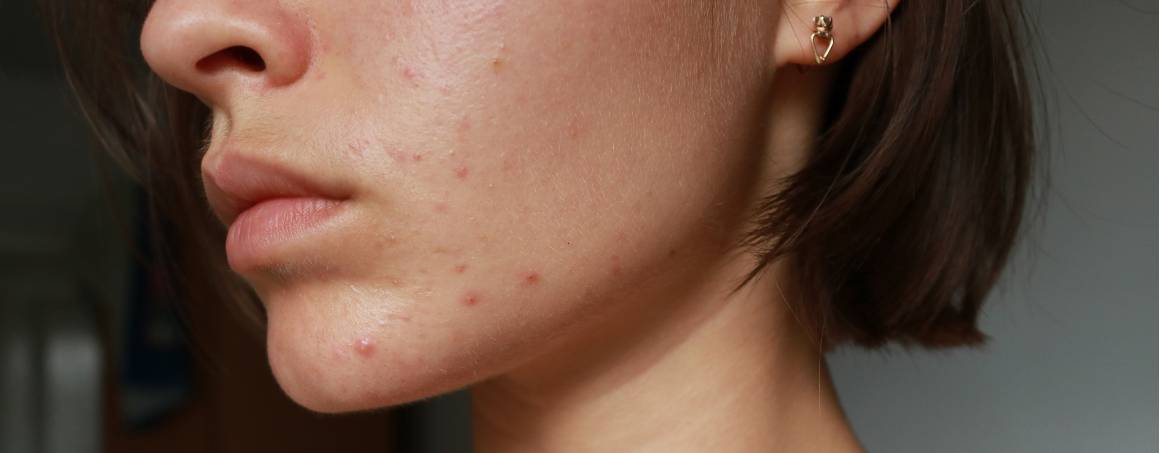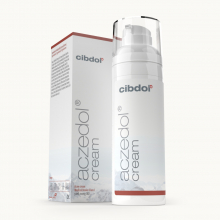Does acne mean you have a weak immune system?
Published:
Acne is a common skin condition that affects people of all ages. It often appears as red or white bumps on the face, chest, back and shoulders. Acne can range from mild to severe, and in some cases can lead to scarring and discoloration of the skin. Many people wonder what causes acne and if it's related to immune system health.
Contents:

So does having acne mean you have a weak immune system? Let's take a closer look.
What Causes Acne?
Acne forms when hair follicles become clogged with excess oil and dead skin cells. This creates a perfect environment for the growth of a bacteria called Propionibacterium acnes, which lives on everyone's skin. The bacteria, combined with the clogged follicle, leads to inflammation and the formation of red pimples or pustules.
There are many factors that can contribute to excess oil production and clogged pores that lead to acne breakouts:
- Hormonal changes - Increases in androgens during puberty cause the sebaceous glands to enlarge and produce more oil. Fluctuations in hormones before periods can also trigger breakouts in women.
- Genetics - Some people are simply more prone to acne due to hereditary factors. If your parents had acne, you're more likely to struggle with it too.
- Medications - Certain medications like steroids, testosterone, or lithium can induce acne flares.
- Stress - High stress levels increase inflammation and sebum production, making breakouts more likely.
- Diet - There are controversial links between high glycemic foods, dairy, and acne. More research is needed.
- Hygiene - Oil, grease, sweat, dirt, and hair products can build up and clog pores.
So while acne is influenced by hormones, genetics and environment, does it actually have anything to do with the immune system?
The Immune System’s Role in Acne
The immune system defends the body against infection and disease. It’s composed of specialized cells, tissues, and organs that recognize and destroy harmful pathogens.
Recent research suggests there may in fact be a link between acne and immune system functioning. Here's what the science says so far:
- Inflammation - Acne is considered an inflammatory disease. The immune system drives inflammation as white blood cells rush to infected pores. For some, this inflammation spirals out of control, worsening acne.
- Cytokines - Studies show acne patients have higher levels of cytokines like IL-1α, IL-8, TNFα and IL-12, which are small proteins that coordinate immune responses. This indicates immune system involvement.
- Oxidative stress - Those with acne often have lower antioxidant levels and higher oxidative stress, which can impair immune defenses.
- Propionibacterium acnes - Immune cells produce antimicrobial peptides that keep this acne-causing bacteria population under control. If immunity is weak, it can overgrow.
This research suggests immune system activity plays a role in the development and progression of acne. However, the key question remains...
Does Having Acne Mean You Have a Weak Immune System?
While there appears to be an interaction between acne and immune regulation, having breakouts does not necessarily mean you have a “weak” immune system.
Here are a few key points:
- Having acne only affects one aspect of overall immune function - the skin's immunity against P. acnes. Other innate and adaptive immune defenses can still be strong.
- Those with immune deficiencies like HIV or chronic illnesses don't necessarily have higher rates of acne - the relationship is complex.
- Populations with strong immune genes like indigenous communities can still struggle with breakouts. Acne rates are rising globally despite improvements in general health.
- Many other factors like hormones, hygiene and genetics influence acne development aside from just immune function.
So in summary, while acne and immunity are linked in some ways, acne itself does not equal a weak immune system. Breakouts are not necessarily a sign of being immunocompromised or more infection prone. Plenty of otherwise healthy individuals with robust immunity battle with pimples!
How Can You Strengthen Immunity Against Acne?
If you're struggling with breakouts, focusing on reducing inflammation and supporting overall immune health may be helpful as part of a multifaceted acne treatment plan. Here are some tips:
1. Adopt an anti-inflammatory diet. Minimize refined carbs, sugar, dairy and processed foods which can all drive inflammation. Load up on anti-inflammatory foods like veggies, nuts, berries, fatty fish and probiotics. An anti-inflammatory diet provides nutrients that benefit both skin and immunity.
2. Manage stress levels. Chronic stress increases inflammatory cytokines and hormones like cortisol which exacerbate acne. Prioritize self-care practices like meditation, yoga, journaling and social connection to lower stress long-term.
3. Exercise regularly. Moderate exercise helps control inflammation, balances hormones, reduces oxidative stress, and lifts mood. Aim for 30-60 minutes daily to boost immunity and skin health.
4. Supplement wisely. Certain supplements like zinc, vitamin C, D, E, and probiotics can help inflammatory acne without compromising immune defenses. Speak to a dermatologist before supplementing.
5. Know your triggers. Determine foods, products or habits that worsen your breakouts, which often boil down to inflammation triggers. Eliminate triggers and proactively control flare-ups.
6. Get quality sleep. Aim for 7-9 hours nightly for hormonal balance and immune regulation. Poor sleep increases inflammatory markers.
7. Practice skin care diligence. Keep skin clean to minimize P. acnes overgrowth, but avoid excessive washing which depletes the skin’s beneficial microbes. Use non-comedogenic moisturizers to repair skin barriers.
8. See a dermatologist. Get professional advice about prescription anti-inflammatory medications, antibiotics or accutane if OTC routines aren’t working after a few months.
Making immune-supporting lifestyle choices while also directly treating acne is the best way to achieve clear skin long-term. Be patient and don't lose hope - it may take some trial and error to find what works for your unique biology.
Key Takeaways: Acne and Immunity
In summary, here are the key takeaways when it comes to acne and immunity:
- New research indicates acne involves some aspects of immune system functioning like increased inflammation.
- However, acne alone is not a definitive sign of a compromised or "weak" immune system.
- Supporting overall immune health with diet, lifestyle and supplementation may complement acne treatment.
- A multifaceted approach to reducing inflammation both inside and out is needed for optimal skin clarity.
- Be patient and persistent to find the right acne treatments for your body. Work with a dermatologist if needed.
While acne is undoubtedly frustrating, rest assured it is not your fault or due to inadequate immunity in most cases. With consistent care of both your skin and immune system, you can overcome the battle with breakouts.
Frequently Asked Questions
Still have questions about the relationship between acne and immunity? Here are answers to some common queries:
Does having acne mean I'm more likely to get sick?
No, acne does not directly cause you to get sick more often. It’s focused skin inflammation, not whole-body immune suppression. Practice general healthy habits, manage stress, and eat a balanced diet to support disease resistance.
If I improve my diet, will my acne clear up?
Diet alone will not “cure” acne for most people. However, an anti-inflammatory diet high in veggies, fruits, lean proteins, nuts and probiotics can help decrease flare-ups for some acne cases by lowering immune triggers. It’s worth trying for a couple months along with other tactics.
Should I take supplements to boost immunity against acne?
Discuss supplement options with your dermatologist first. Topical treatments tend to be more effective for acne than oral supplements. Some supplements like zinc and vitamin A derivatives can potentially help, but excess supplementation can also impair immunity. More is not always better.
Can I prevent acne with a strong immune system?
There is no guaranteed way to prevent acne, even with strong immune function. However, supporting overall health and immunity can help decrease the intensity, frequency and duration of breakouts by controlling inflammation. Quickly treating flare-ups also helps prevent lasting scars.
Does stress cause acne because it weakens my immune system?
Stress contributes to acne in several ways, including increased oil production, inflammation, and hormones that impair skin immunity against P. acnes bacteria. Lowering stress through lifestyle interventions can help control breakouts by calming these immune triggers.
The connection between acne and immunity is complex, but the bottom line is that acne does not equal a weak immune system. Working to reduce inflammation and support your body's defenses, while directly treating breakouts, will help achieve clear, healthy skin. Be patient with yourself and don't hesitate to seek professional guidance.










